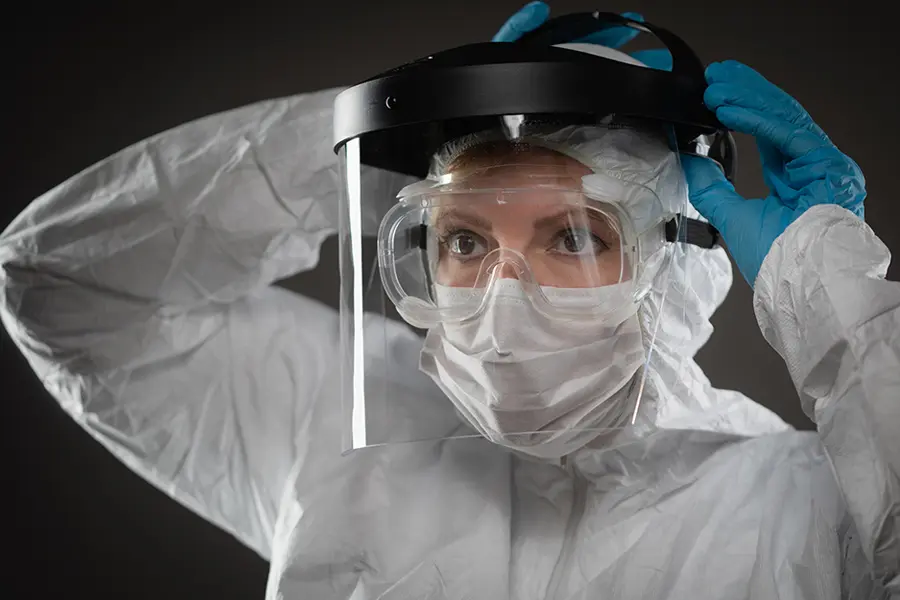As the number of COVID-19 cases in Florida tops 36,000, the challenges Florida’s doctors and nurses face every day are becoming increasingly apparent. From the imminent threat to their own health and dangers of spreading the disease to their families to deciding how best to treat a disease for which there are no cures, our health care providers are being forced to handle more than their share of extremely stressful situations throughout the course of a “normal” workday.
By now, most of us are aware of the dangers of caring for patients with the highly contagious coronavirus amidst alarming shortages of personal protective equipment (PPE) in hospitals, but few of us outside the medical field are aware of other challenges facing doctors and nurses as they try to provide quality care. In this blog post, I’m going to discuss a few of these challenges and what healthcare organizations and government can do to protect our healthcare professionals.
Protections from COVID-19 in the Florida Healthcare Setting
Many of Florida’s doctors and nurses working in hospitals can’t avoid being exposed to the coronavirus, yet some are being asked to put themselves in harm’s way without adequate safety precautions. In addition to dealing with a widespread shortage of personal protection equipment (PPE), healthcare professionals are also faced with weakened standards and a push to cut corners.
National Nurses United, the largest union and professional association of registered nurses in the U.S., reports that nurses across the country are not receiving the PPE, education, communication from their employers, proper staffing, or isolation rooms they need to care safely for COVID-19 patients. They point out that the federal Occupational Safety and Health Act of 1970 that requires employers to provide “employment and a place of employment which are free from recognized hazards that are causing or are likely to cause death or serious physical harm,” includes COVID-19 exposure in hospitals and other healthcare facilities.
According to National Nurses United, hospitals and other healthcare employers can fulfill their obligation to provide a safe workplace by implementing protection, including:
- PPE, including N95 respirators or higher, isolation gowns, eye protection, and gloves.
- Ongoing communicationabout any potential exposure to suspected or confirmed COVID-19 case(s).
- Screening protocolsto identify patients who may have COVID-19 infections.
- Plans to ensure prompt isolationof patients with suspected or confirmed COVID-19 infections in airborne infection isolation rooms.
- Training and a system for putting on and taking off PPE.
- 14 days paid precautionary leavefor a nurse or other healthcare worker who is exposed to COVID-19.
Emergency Response Protections
Physicians and nurses are at the forefront of caring for COVID-19 patients, yet they have no roadmap for how to provide safe, effective care. They are observing a disease progress in ways they have never seen before, their healthcare environment has changed, and they are taking on new responsibilities and roles.
In this crisis situation, healthcare professionals need emergency response liability protections. The CARES Act, signed into law on March 27, 2020, provides some federal liability protections for physicians and other healthcare professionals who provide volunteer medical services during the COVID-19 pandemic; however, according to the American College of Physicians, they need broader protection at the state level for situations involving:
- Providing care outside their general practice areas.
- Coming out of retirement to help combat the COVID-19 health crisis.
- Inadequate PPE that could result in the transmission of the virus while in their care.
- Shortages of equipment that can force physicians to ration care.
- Inadequate testing that could lead to delayed or inaccurate diagnoses.
Protection for Following Federal, State and Local Directives
In light of federal, state and local directives to postpone elective surgeries and procedures, many physicians fear patients will face negative outcomes. The American Medical Association (AMA) has pointed out that decisions on which surgeries and procedures can be delayed and which ones can’t are “complex multi-faceted determinations made by the physician and panels of experts within a facility.”
Delaying appointments, procedures and surgeries can leave physicians and other healthcare professionals vulnerable to future liability claims, so the AMA is urging states to grant them immunity for any harm caused by an act or omission related to government directives on cancelling, delaying or denying care because of the COVID-19 pandemic. This includes suspending most elective in-person visits and replacing them with virtual visits, delaying elective surgeries and procedures, and delaying treatment for patients with conditions other than COVID-19.
Get Legal Help When You Need It
Hopefully, state governments and hospitals will provide the protection doctors, nurses and other healthcare professionals need during this challenging time. However, if you’re ever in a situation where you need help from an experienced healthcare defense attorney, please know you can rely on Attorney Jonathan Rose for strong representation and expertise in Florida medical license defense for doctors and Florida license defense for nurses.
Sources:
American College of Physicians. (2020, April 17). Medical liability protection during COVID=19.
https://www.acponline.org/advocacy/state-health-policy/covid-19-action-toolkit/medical-liability-protection-during-covid-19
American Medical Association. AMA urges emergency response protections for physicians. (2020, April 20).
https://www.ama-assn.org/press-center/press-releases/ama-urges-emergency-response-protections-physicians
National Nurses United. (2020). What your employers should provide: Protections at Work for COVID-19.
https://www.nationalnursesunited.org/california-nurses-know-your-rights-protections-work-covid-19-0

